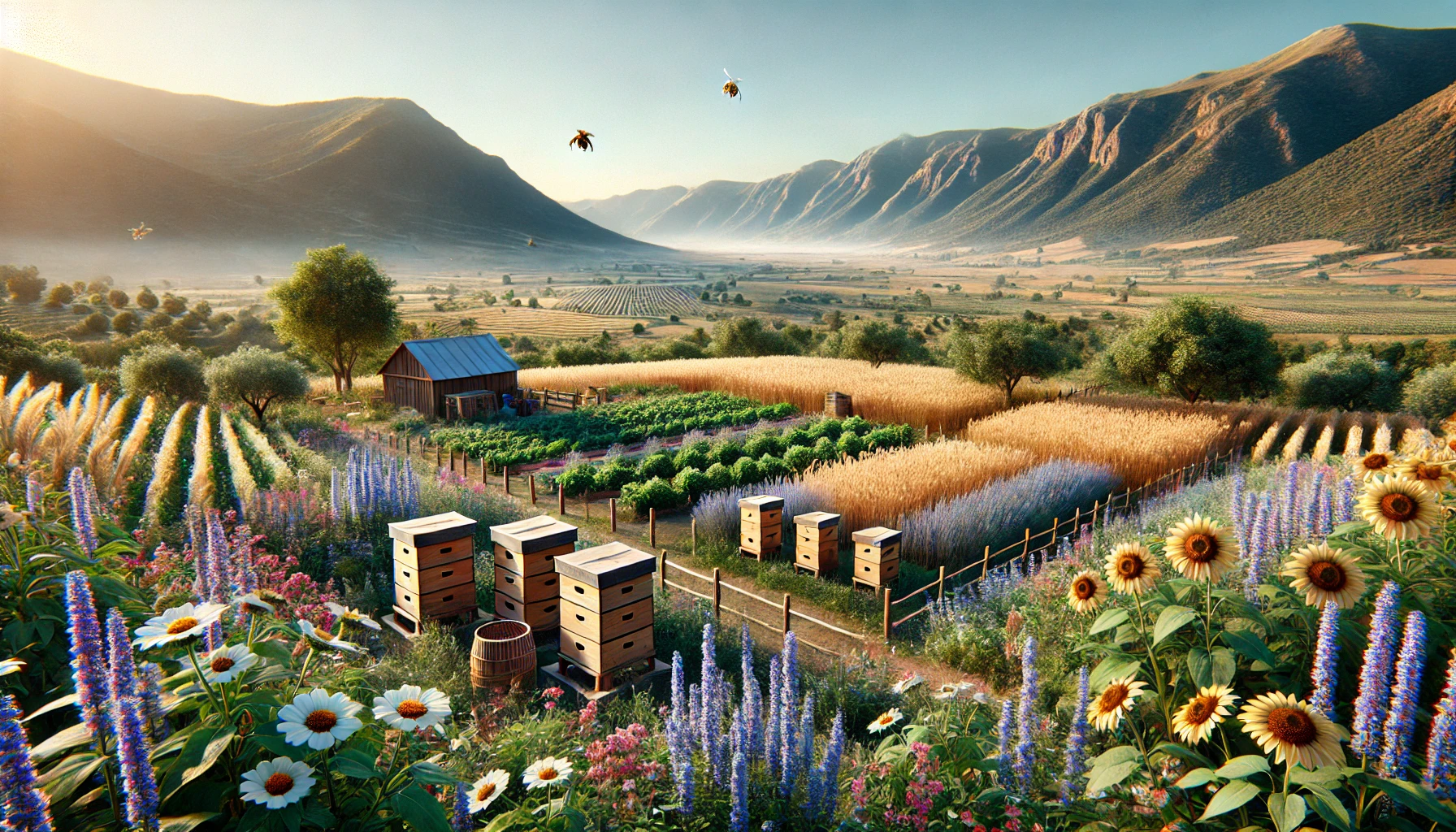A New Approach to Farming in Lebanon
In the fertile lands of Lebanon’s Beqaa Valley, Buzuruna Juzuruna (BuJu) is reshaping the future of farming. This unique organic seed farm is part of a growing agroecological movement in Lebanon, aiming to empower farmers through seed sharing, communal education, and sustainable practices. Despite Lebanon’s location in the Fertile Crescent, which has a long history of agriculture, the country now relies heavily on imported food due to economic challenges and political instability. BuJu seeks to change that by promoting self-reliance and resilience among local farmers.
Building a Network of Agroecological Practices
BuJu, which means “Our Seeds, Our Roots” in Arabic, serves as more than just a farm. It is a hub for education, experimentation, and community engagement. The farm’s approach is decentralized, allowing for an open exchange of ideas and practices. Through free classes, festivals, and even circus performances, BuJu introduces farmers to traditional, ecological farming methods that have been overshadowed by modern industrial agriculture.
The Farm’s Unique Environment
Visitors to BuJu are often surprised by its unconventional setup. The most striking feature is a large yellow and red circus tent that stands out among the farm’s simple, clay-built houses with wooden facades made from local poplar trees. Despite its modest size of just 2 hectares (4.9 acres), the farm is home to more than 70 crop varieties, including 13 types of wheat, all thriving alongside flowers and aromatic plants.
The farm’s location in the Beqaa Valley provides a unique microclimate, with mountains that attract and block Mediterranean winds, creating a fertile environment even in the face of climate change. “Lebanon is the only country in the Middle East with high enough mountains to affect the weather significantly,” says Serge Harfouche, a co-founder of BuJu. He highlights the region’s potential for sustainable agriculture, given its abundant rain and diverse climates.
Empowering Through Seeds and Knowledge
BuJu’s mission goes beyond farming; it is about restoring autonomy and resilience to local communities. Since its founding in 2016, BuJu has collected over 300 heirloom seed varieties, preserving and sharing them with farmers and gardeners across Lebanon. This seed bank is crucial in promoting biodiversity and reducing dependency on imported, hybrid seeds that do not reproduce effectively.
The farm offers various educational opportunities, including workshops on beekeeping, tree grafting, organic farming practices, and more. By publishing resources such as “Towards Peasant Autonomy,” BuJu ensures that agroecological knowledge is accessible, particularly in Arabic, filling a gap in educational materials for the region.
A Response to Modern Challenges
BuJu’s work addresses the challenges posed by modern agriculture, which has heavily relied on chemical inputs. According to a report by Arab Reporters for Investigative Journalism, a significant percentage of vegetables in Lebanon contain harmful pesticides, some banned globally. This reliance on chemicals is partly due to economic pressures and lack of education on sustainable practices.
Through its community outreach, BuJu demonstrates the benefits of agroecology, not just for the environment but also for the health and economic well-being of farmers. The farm’s model promotes a circular economy where resources are reused, and profits remain within the local community.
Building a Resilient Community
BuJu’s impact extends beyond farming. The farm actively works to integrate local and refugee communities through educational programs and cultural activities, such as workshops and performances by the Bulaban Circus. By fostering a sense of community and shared purpose, BuJu helps build social ties and resilience among diverse groups in the region.
One beneficiary of BuJu’s support is Erica Accari, who runs a nearby regenerative farm called Turba. “They are so helpful; I don’t know what I would do without their community and guidance,” Accari says, highlighting the importance of collaboration and shared knowledge.
A Vision for the Future
BuJu’s approach to farming and community development represents a departure from conventional methods. By focusing on sustainability, education, and community empowerment, BuJu is creating a model for a resilient, agroecological future. Harfouche emphasizes the importance of patience and long-term thinking in agriculture, contrasting it with the quick-fix mentality of industrial farming.
Through its efforts, BuJu is planting seeds of change — both literally and metaphorically. The farm is redefining what it means to be part of an ecosystem, positioning itself not as an external force but as an integral component of the natural world. This holistic view of agriculture is at the heart of BuJu’s mission, embodying the true spirit of agroecology.
